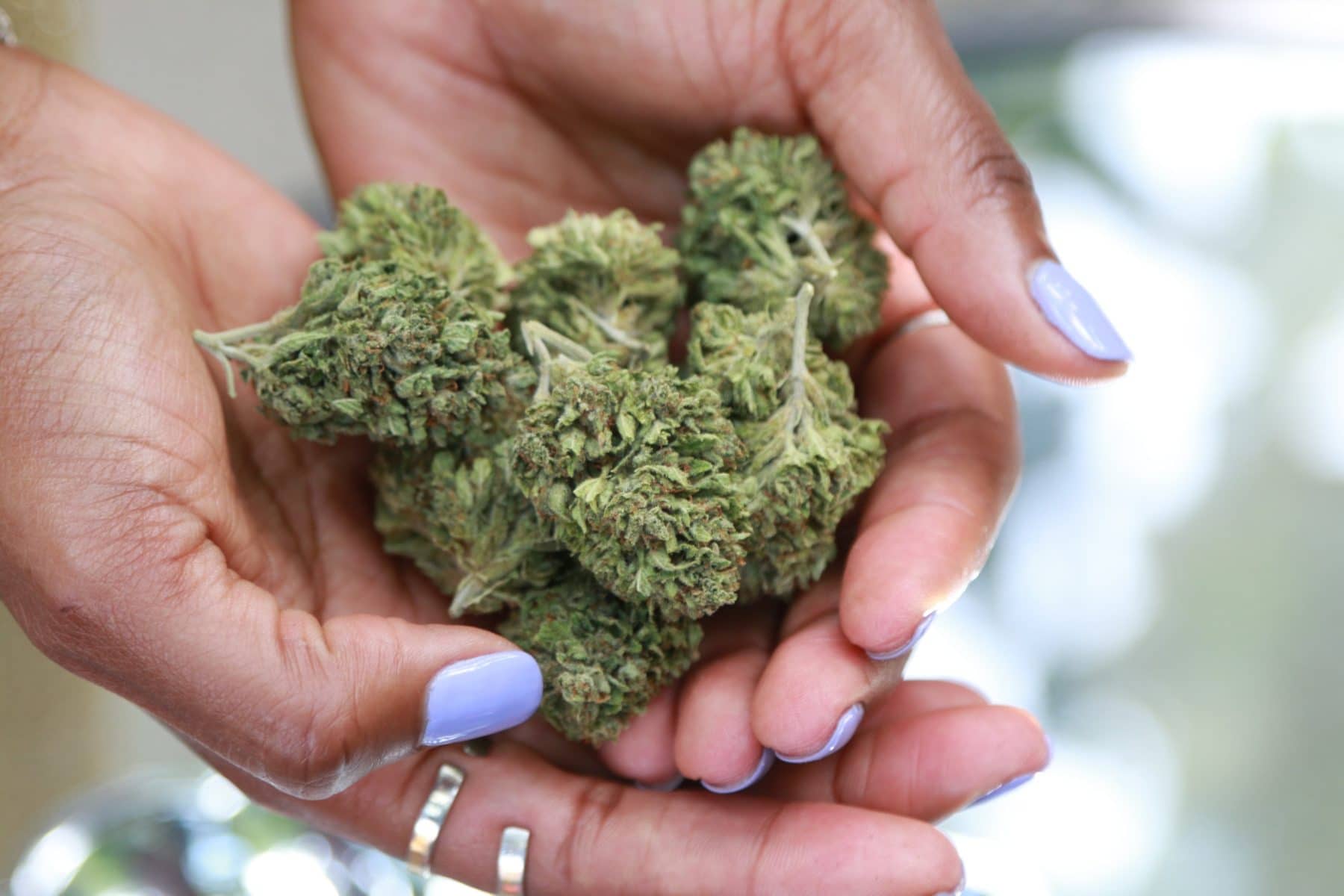In the hyper-commodifying cannabis industry, Mary Pryor of New York City is raising her voice for people of color to have an equal seat at the table. “I was tired of being among one of the only people of color in the room,” she said. “I was met with microaggressions of all types, mostly from men. They didn’t understand how I even knew what I did, and they asked me the dumbest questions on Earth.”
Fed up, Pryor helped found Cannaclusive to work with and educate other black and brown people interested in cannabis. She also influences other cannabis companies to more aggressively build a diverse and inclusive industry.
Like many people in the cannabis industry, Mary Pryor didn’t start her career working with the plant. She spent 10 years working in digital and social media marketing for firms like Sony Music Group and Viacom, and provided her own consulting service.
But in 2013, Pryor was diagnosed with Crohn’s disease. “It completely derailed everything,” she told Filter. “I was on 20 different medications for years that didn’t work and I felt like trash.” Until she came across research about treating Crohns’ with medical cannabis.
“I was a recreational user before that,” she said. “But then I learned how to use certain strains to make myself feel better, not just to get high. Now I use cannabis in a smarter and more developed way, and it’s really improved my health.” Pryor wanted to bring this knowledge and power back to her community.
“We wanted to create something that supported not just minority consumers, but minority business owners.”
But the more she engaged with the cannabis community, the more Pryor realized how unwelcoming it is to people like her. In May 2017, she and Tonya Rapley, soon joined by Charlese Antoinette, co-founded Cannaclusive to help solve this problem.
“We wanted to create something that leveraged our existing skill-sets and supported not just minority consumers, but minority business owners,” said Rapley.
“As we attended events in the space and met others, we realized we had a lot to offer the industry, but became frustrated with the lack of real opportunities. Many cannabis companies’ staff had no diversity, and their messaging, identity and team were all homogenous. So we decided to build our own machine.” Today, the company comprises a staff of six black women, of which they are very proud.

Charlese Antoinette, Tonya Rapley and Kendra Norwood of Cannaclusive
Pryor and Rapley agree that their greatest success so far has been their cannabis stock photo series, created to depict cannabis users in a more empowering light. They now offer it for free for other businesses to use in their marketing.
Cannaclusive also produces educational cannabis events in partnership with industry peers. Some of their past events have discussed how to launch a CBD brand in New York, using social media in cannabis, and business opportunities for black entrepreneurs.
This April 20, they are partnering with cannabis media brand EstroHaze to produce a private 420 event in Brooklyn. Soon they will debut an educational series in Los Angeles, as well as an incubator program for cannabis entrepreneurs forming ancillary service companies. Ancillary companies don’t “touch the plant” in manufacturing or retail, but instead provide services like creative design, marketing, legal counsel and business consultation.
“If they can’t give you the respect you deserve … don’t give them your consumer power.”
Pryor believes cannabis businesses have an obligation to hold each other accountable to their consumers, and combat racism and sexism—a responsibility that is sharpened by the long history of cannabis prohibition and its racially disparate harms. She believes consumers have an important role in this, too.
“If there’s a brand that doesn’t support you or inclusion, don’t buy their product, don’t waste your energy,” Pryor said. “If they can’t give you the respect you deserve … don’t give them your consumer power.”
Embracing inclusivity, she explained, is not just the right thing for companies to do—it’s also better for business. This has been shown in many industries: Films with diverse casts perform better at the box office; companies with more diverse management teams generate more revenue and innovate faster; and those with higher ethnic and gender diversity are significantly more likely to have financial returns above their industry average.
On the other hand, a lack of inclusivity—or open hostility towards marginalized groups—could spell disaster for businesses or even jurisdictions. Just ask the state of North Carolina, which is projected to lose nearly $4 billion over 12 years after its anti-LGBTQ “bathroom bill” became law.
Pryor pointed out the contradiction between the fact that black Americans have defined much of our popular culture and drive $1.2 trillion in annual consumer spending, but comprise only about 2 percent of business owners nationally as of 2014. The cannabis industry fares little better: just over 4 percent of business owners and founders are black.
“Starting a plant-touching business is crazily expensive, but ancillary businesses are very viable.”
“We don’t want the industry norm to be that your only people of color on staff are in low-wage, entry-level positions,” said Rapley. “We’d like to see more people of color being tapped for leadership roles. We want diversity and inclusion to be so normal that it’s what’s expected in the industry. As cannabis enthusiasts we need to go out of our way and speak to the people of color in cannabis spaces, and not just those who make us feel comfortable.”
Asked for her advice to budding entrepreneurs without substantial resources, Pryor had one word: ancillaries.
“Starting a plant-touching business for anyone is crazily expensive,” she said. “But ancillary businesses are very viable. You don’t need $5 million to jump in the game. There’s always room for smart, well-branded, dynamic products. But businesses need better help with marketing and branding development.”
“Figure out which states have the best regulations for your business and move there,” she continued. “This is a global industry now. If you’re waiting on a state to go green, that’s bad strategy.”
Top photo by Cannaclusive/Creative Commons




